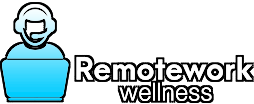
Remote work has evolved from a niche practice to a mainstream business strategy, largely accelerated by technological advancements and the global COVID-19 pandemic. Personally, I’ve been working remotely from my home office – or the Treehouse Office – since 1996 and can’t imagine ever working in a traditional office again. Here are some benefits to working remotely:
- Increased Productivity
Contrary to some traditional beliefs, remote work often leads to increased productivity. Without the distractions of a busy office environment, many employees find they can focus better on their tasks. Studies have shown that remote workers are often more productive due to fewer interruptions, more comfortable work environments, and the ability to work during their peak productive hours.
- Flexibility and Work-Life Balance
One of the most significant advantages of remote work is the flexibility it offers. Employees can often set their schedules, allowing them to work when they are most productive. This flexibility extends to balancing personal and professional responsibilities, leading to improved work-life balance. Parents, for instance, can better manage childcare, and all employees can more easily attend to personal errands or health appointments.
- Cost Savings
Both employees and employers can realize substantial cost savings through remote work. Employees save on commuting expenses, work attire, and meals. Employers can reduce overhead costs related to office space, utilities, and office supplies. These savings can be significant, especially for businesses in high-rent areas.
- Access to a Global Talent Pool
Remote work removes geographical barriers, enabling companies to hire the best talent regardless of location. This access to a global talent pool can be particularly beneficial for specialized roles where the best candidates might not be within commuting distance. It also allows companies to operate across different time zones, potentially offering 24/7 customer service and support.
- Environmental Benefits
Remote work contributes to environmental sustainability by reducing the need for daily commuting. Fewer cars on the road lead to lower greenhouse gas emissions, reduced air pollution, and decreased demand for public transportation. Additionally, less office space translates to lower energy consumption.
- Employee Satisfaction and Retention
Employees who work remotely often report higher job satisfaction. The flexibility and autonomy that come with remote work can lead to happier employees who feel more trusted and valued. This satisfaction can translate into higher retention rates, saving companies the costs associated with high turnover.
- Health and Wellness
Remote work can positively impact employees’ health and wellness. The flexibility to create a comfortable and ergonomic workspace, the ability to prepare healthier meals at home, and the reduction of stress associated with commuting all contribute to better overall well-being. Furthermore, remote workers can more easily integrate physical activity into their day, leading to improved physical health.
- Enhanced Communication and Collaboration Tools
The rise of remote work has spurred the development of advanced communication and collaboration tools. Platforms like Slack, Zoom, Microsoft Teams, and Asana have become integral to maintaining connectivity and productivity. These tools facilitate seamless communication, project management, and team collaboration, ensuring that remote teams can work effectively and cohesively.
- Disaster Preparedness and Business Continuity
Remote work can be a critical component of a company’s disaster preparedness and business continuity plans. Whether dealing with natural disasters, pandemics, or other emergencies, the ability to work remotely ensures that businesses can continue operations with minimal disruption.
The benefits of working remotely are numerous and multifaceted, offering advantages to both employees and employers. From increased productivity and cost savings to enhanced flexibility and employee satisfaction, remote work is transforming the modern workplace. As technology continues to evolve and more companies embrace this model, the future of work is likely to be increasingly remote, bringing with it new opportunities and challenges.
References
- Bloomberg, “Remote Work Boosts Productivity,” [source](https://www.bloomberg.com/news/articles/2021-08-31).
- Forbes, “Why Remote Work Is More Productive,” [source](https://www.forbes.com/sites/jackkelly/2021/02/01).
- Harvard Business Review, “How Remote Work Improves Work-Life Balance,” [source](https://hbr.org/2020/07).
- CNBC, “Cost Savings for Remote Workers,” [source](https://www.cnbc.com/2020/10/08).
- Global Workplace Analytics, “Financial Benefits of Remote Work,” [source](https://globalworkplaceanalytics.com/resources/cost-benefits).
- LinkedIn, “Global Talent Pool in Remote Work,” [source](https://www.linkedin.com/pulse).
- Environmental Protection Agency, “Environmental Benefits of Telecommuting,” [source](https://www.epa.gov/telework/benefits).
- Scientific American, “Remote Work’s Impact on the Environment,” [source](https://www.scientificamerican.com/article).
- Gallup, “Remote Workers Report Higher Job Satisfaction,” [source](https://www.gallup.com/workplace).
- Healthline, “Health Benefits of Working From Home,” [source](https://www.healthline.com/health/remote-work-health-benefits).
- TechCrunch, “The Rise of Remote Collaboration Tools,” [source](https://techcrunch.com/2020/04/01).
- Wired, “Best Tools for Remote Work,” [source](https://www.wired.com/story/best-remote-work-tools).
- Business Insider, “Remote Work and Business Continuity,” [source](https://www.businessinsider.com/remote-work-business-continuity).


